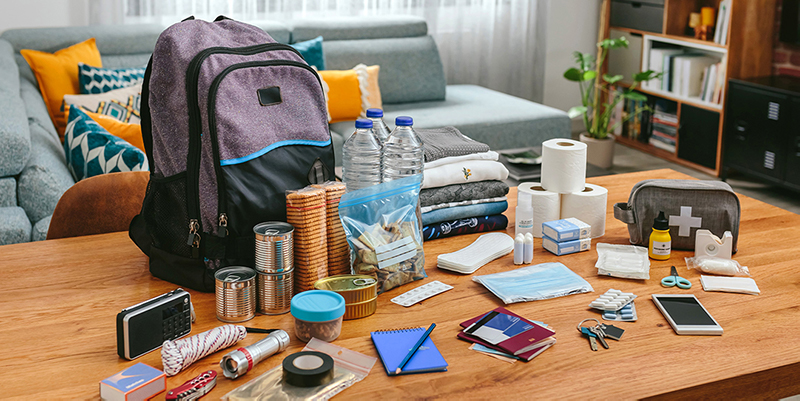September is National Preparedness Month, and we want to make sure you’re prepared for an emergency or disaster that comes your way. An emergency kit is one of the most important ways to be ready. We hope you’ll never need to use it, but it’s always good to have one on hand.
When packing your emergency kit, a few things are essential to remember. We’ve compiled a list of the basics that every emergency kit should have.
- Flashlight(s) with extra batteries – you don’t want to be stranded completely in the dark.
- Whistle – a great way to signal for help if search and rescue, family, or friends are looking for you.
- Dust Mask(s) – to help protect you against contaminated air and air-borne illnesses.
- Maps of the Area – you may need this to find your way around if there’s no power or internet access.
- Non-Perishable Food – you’ll want to make sure you don’t go hungry while you’re waiting.
- Manual Can Opener – to open any non-perishable, canned goods you may have.
- Battery-Powered or Hand Cranked Radio – to receive updates on what’s happening around you, the latest news, or any safety risks.
- Activities – can help to keep your mind off the stressfulness of the situation and keep your children entertained.
- First Aid Kit – you, or someone you know, may need immediate care. Even if it’s just a scratch, it’s better to be prepared.
- Pet Supplies – your pet needs to eat, too! They also may find comfort in having a toy.
- Wrench and/or Pliers – if you need to turn off any sort of utilities (or need a creative way to solve any other problems you may come across), they may be helpful.
- Water – that’s safe to drink and use for sanitation reasons.
- Necessarily Toiletries – whether you need glasses, contacts, or sanitary supplies, make sure you have what you need.
- Essential Documents – passports, birth certificates, social security cards, etc., are important to have on hand.
- Medications – if you take prescription medications, make sure you have those. But it’s also important to bring pain medication, allergy medication, antacids, or anything else you deem important.
Remember that not every emergency kit will look the same; they’ll vary based on your location, what emergencies you’re most likely to encounter, and your family. However, finding everything else you need should be simple with these staples.

